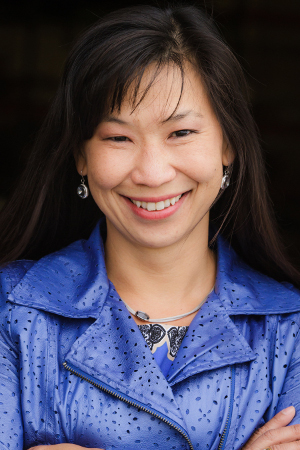This year’s Jim Bennett Achievement Award recipient, Peng-Sang Cau, Com’94, has not let a seemingly impossible childhood stand between her and success. Instead, she draws strength from it.
 Peng grew up in Cambodia in the 1970s under the infamous rule of the Khmer Rouge, a political regime responsible for a genocide that killed as many as 1/3 of its citizens. As a result of their social engineering policies, Peng’s family was ordered to give up their successful bicycle business and live on a collective farm. One day her oldest sister was taken by soldiers and never seen again. The family eventually made it to a refugee camp across the border and then to Regina when she was just 10 years old.
Peng grew up in Cambodia in the 1970s under the infamous rule of the Khmer Rouge, a political regime responsible for a genocide that killed as many as 1/3 of its citizens. As a result of their social engineering policies, Peng’s family was ordered to give up their successful bicycle business and live on a collective farm. One day her oldest sister was taken by soldiers and never seen again. The family eventually made it to a refugee camp across the border and then to Regina when she was just 10 years old.
“Hopefully you take your past – even the really bad, ugly stuff – and learn from it to shape yourself into a stronger human being,” says Peng.
Peng went on to earn a scholarship to attend Queen’s and today she is the chief executive officer of Transformix Engineering, an innovative Kingston-based company that developed and manufactured its revolutionizing assembly technologies call CNCAsembly™ systems and products for manufacturing firms around the world.
Her successful business career – along with her involvement in the Kingston community and her outspoken support for Canadian entrepreneurs – makes her a worthy recipient of the Jim Bennett Achievement Award, which is given by the Kingston Branch of the QUAA to honour Kingstonians for outstanding achievements that have contributed to the betterment of Queen’s or Kingston.
Peng took time out of her busy schedule to talk about her childhood, what makes Transformix so successful, and how attending Queen’s changed her life.
Q: Where does your entrepreneurial spirit come from?
A: I come from a very poor background. I was a refugee and came to Canada when I was 10. From a very young age I swore that I would never be poor. One incident that has always stood out happened when I was young. My whole family had to work and help save money so I had to help clean offices. I remember this one pivotal point in my life when I was cleaning the ash tray in an executive’s office. I was about 11 or 12 and it just grossed me out. From that day on I said “I’ll never be poor again. I’ll never be in this situation again.” That’s a tiny part of what drove me. Being an entrepreneur is in my blood. Everyone in my family are entrepreneurs. My family had a business in Cambodia before the war so I grew up listening to their stories.
Q: What’s the secret to success for Transformix?
A: It’s not much of a secret. In Canada we don’t have the luxury of cheap labour and we have high standards of safety. So in order for us to succeed against other countries Transformix has to focus on innovation and always being one step ahead of our competitors in terms of developing relevant new technologies. At the end of the day, you have to ask the question “Is the technology solving the problem for the market space you are in? What problem is it solving?” And I think we are very good at identifying that. The other part of our success is the combination of having a business person and engineers. One of my partners, Ken Nicholson, Sc’92, says “Without me, Peng would have nothing to sell. Without Peng, the company wouldn’t exist.”
Q: How was your Queen’s experience?
A: If I didn’t go to Queen’s I wouldn’t be where I am today. Regina was a small community at the time. Coming to Queen’s was quite an awakening. It was exposure to the international community. I met a lot of amazing professors who exposed me to other parts of the world and the concept of international business.
Q: Was there one class or professor that had an impact on you?
A: There were a lot of great professors at Queen’s. I took a couple of business courses with Professor Lorna Wright – who is no longer at Queen’s. I worked for her for a summer watching business negotiation videos. What that taught me is that almost all big CEOs from around the world speak English and there is a misconception that if they speak English then they act like us. That is not true at all. You have to appreciate the cultural aspects. So no matter what part of the world I am travelling to I usually pick up a book on how to do business in that region. It is about understanding the subtleties that nobody tells you about. I did an exchange with Professor Don Macnamara to Europe in 1992 and it was eye opening to me. I was a poor refugee kid who had never travelled outside of Regina when I came to Queen’s. My world was very tiny and then I am travelling to Europe and being exposed to international organizations. So Queen’s exposed me to a world I would have never experienced.
Q: How did you overcome such a horrific childhood? Does what you experienced stay with you today?
A: The beautiful part of life and being a child is you can always move on. All you need is love, kindness and opportunity, and I’ve been blessed with all of that. Hopefully you take your past – even the really bad, ugly stuff – and learn from it to shape yourself into a stronger human being. My past gives me a lot of perspective. When I was going through my divorce, I remember my sister telling me “You survived two wars and a refugee camp. What can’t you do?” That statement stays with me today. I feel like I can survive anything now.
Q: How does it feel to receive the Jim Bennett Achievement Award?
A: I feel very honoured but I also feel like a bit of a fraud. I don’t go through my life thinking “Oh my God I am so successful.” What I do is normal day-to-day stuff. It’s what I do every day. I come in and run the company. I don’t spend time evaluating my success. I know I still have a lot more to achieve in my life.
Please join the Kingston alumni Branch in honouring Peng and Padre Laverty Award recipient David Pattenden, Arts'67, MA'69, Law'71, MEd'74, at the Padre Laverty and Jim Bennett Awards Dinner on May 28. Register online until May 21.

